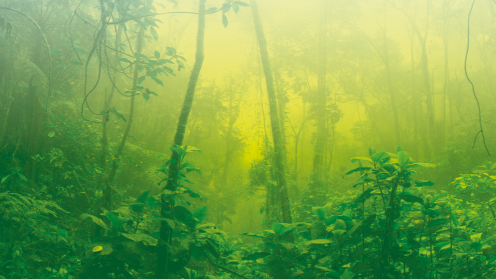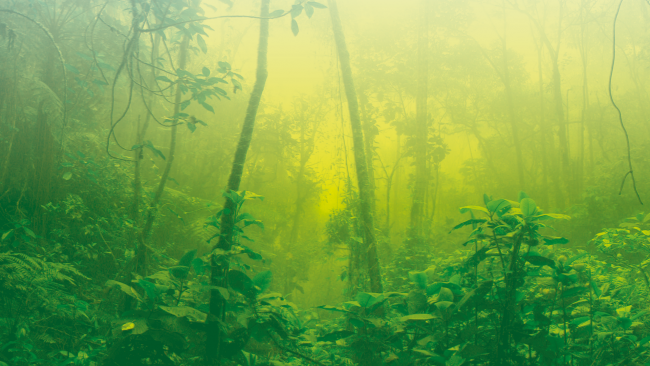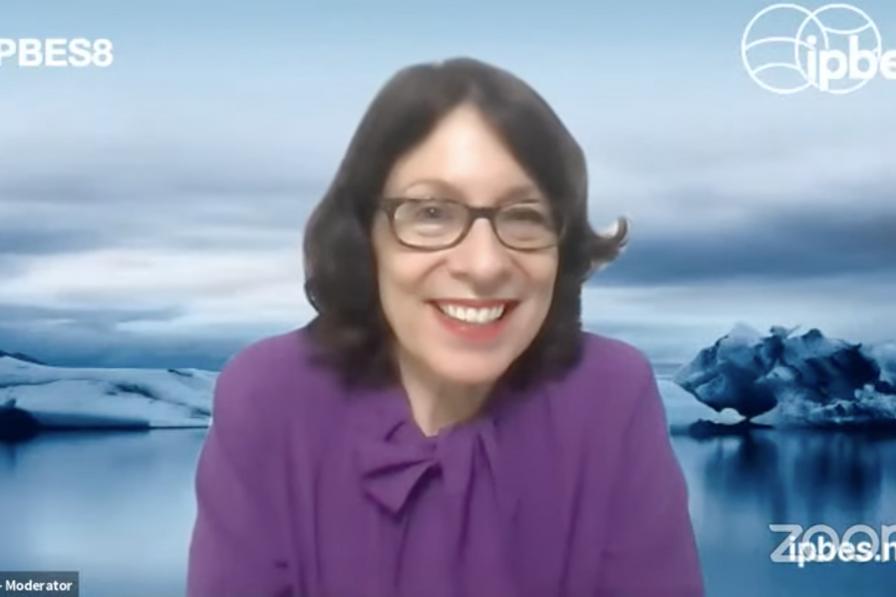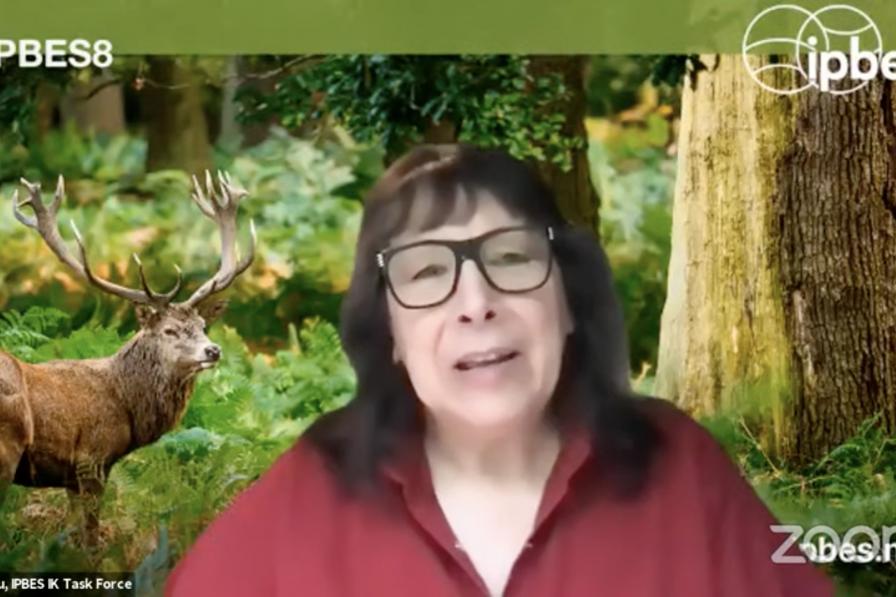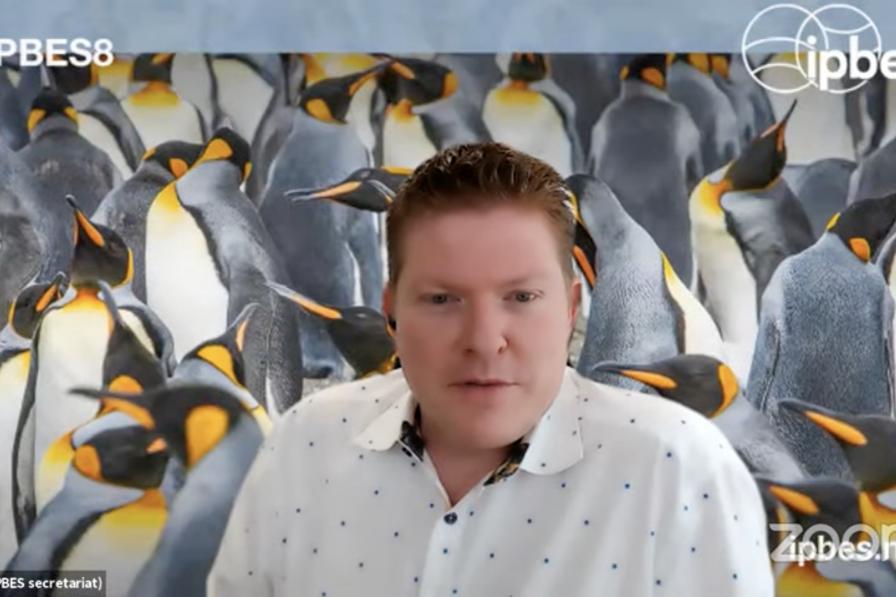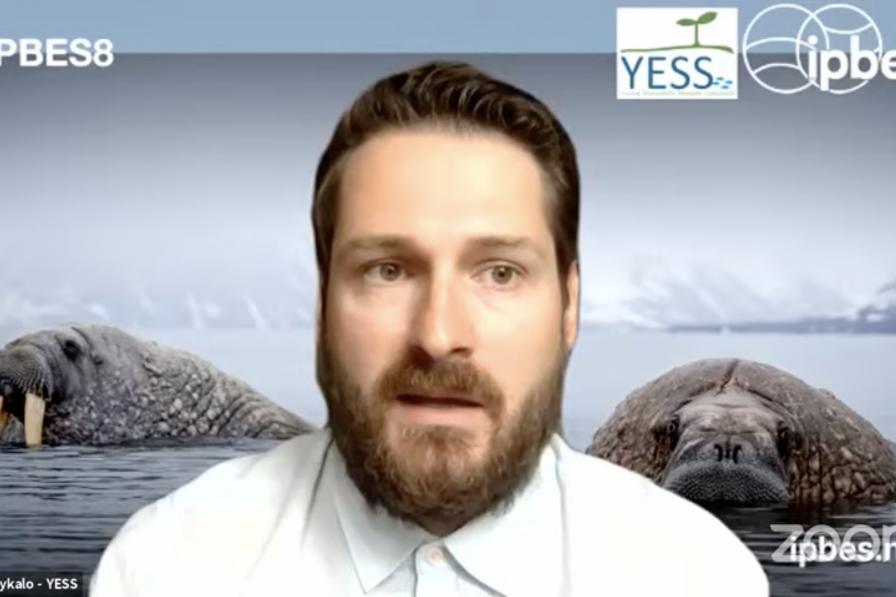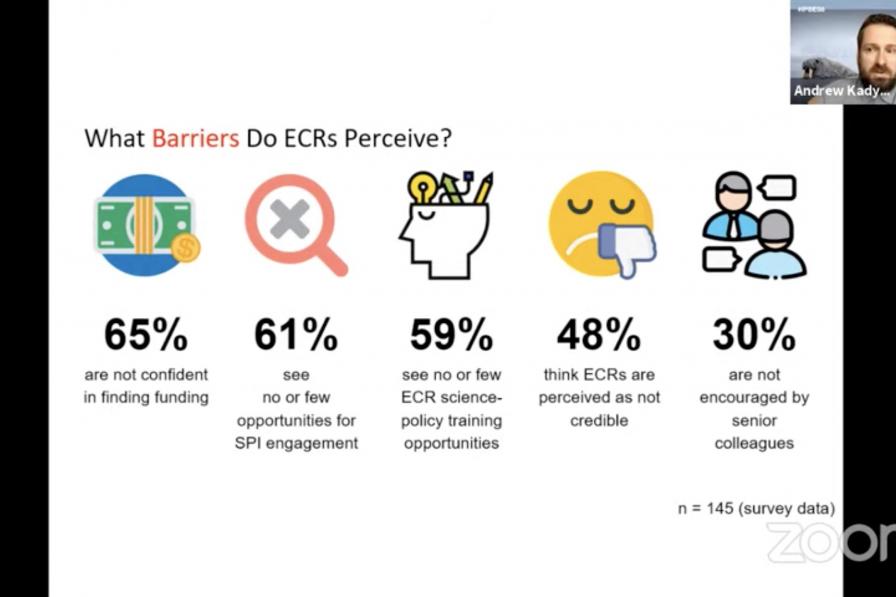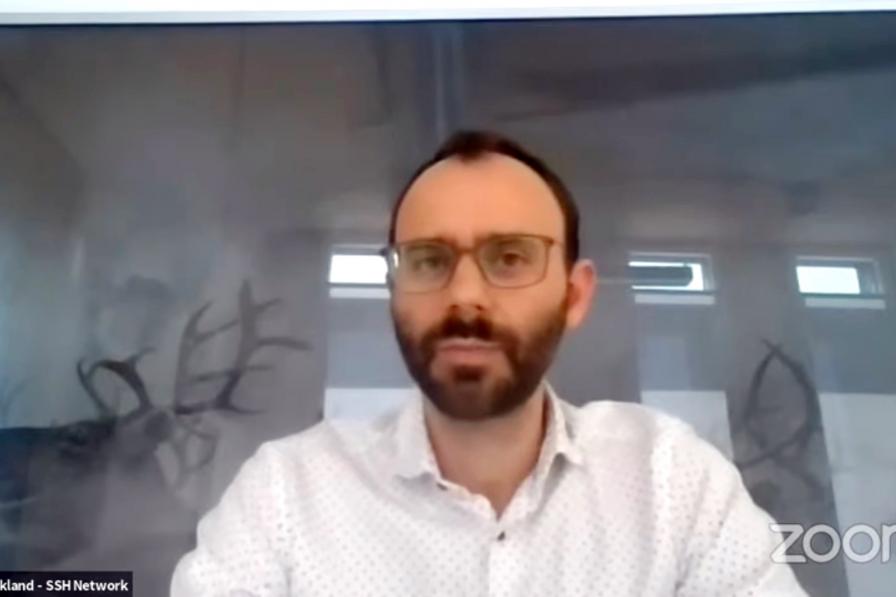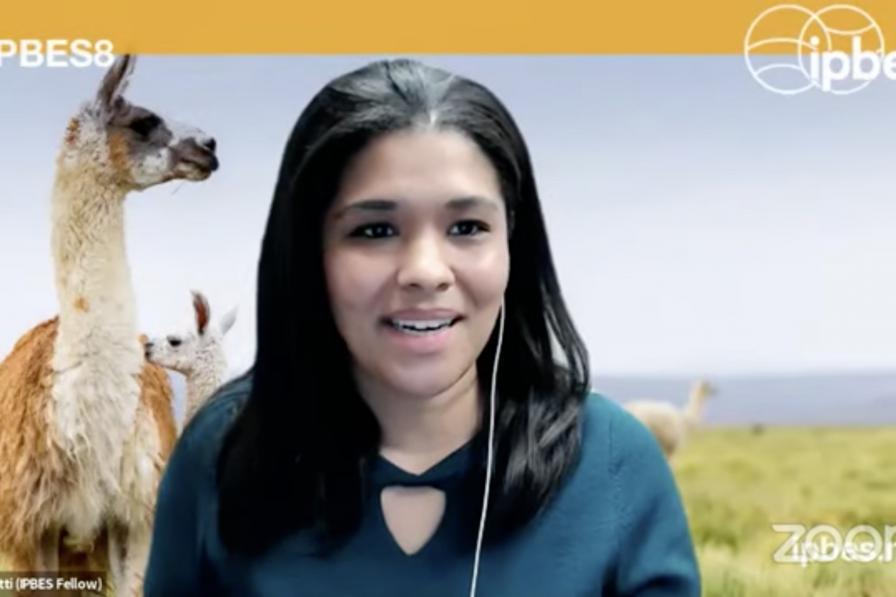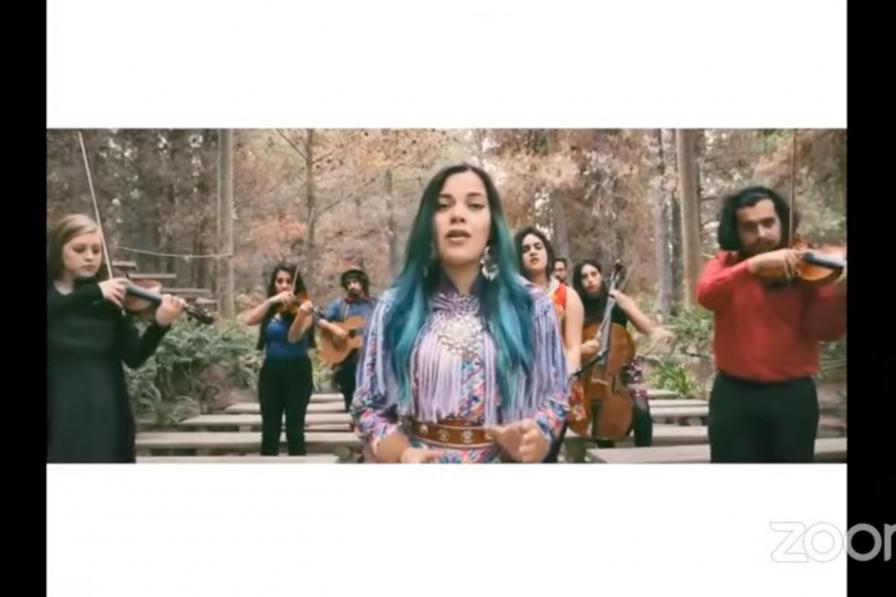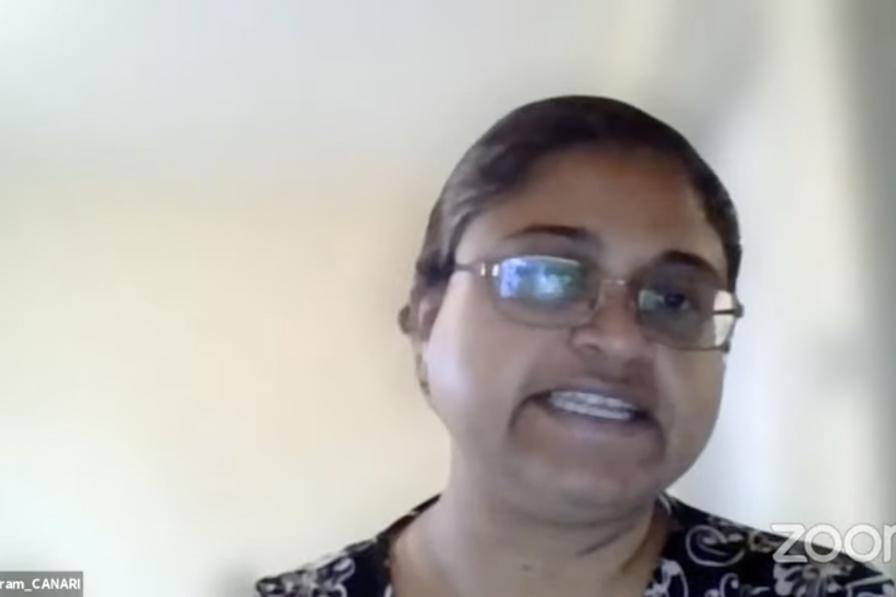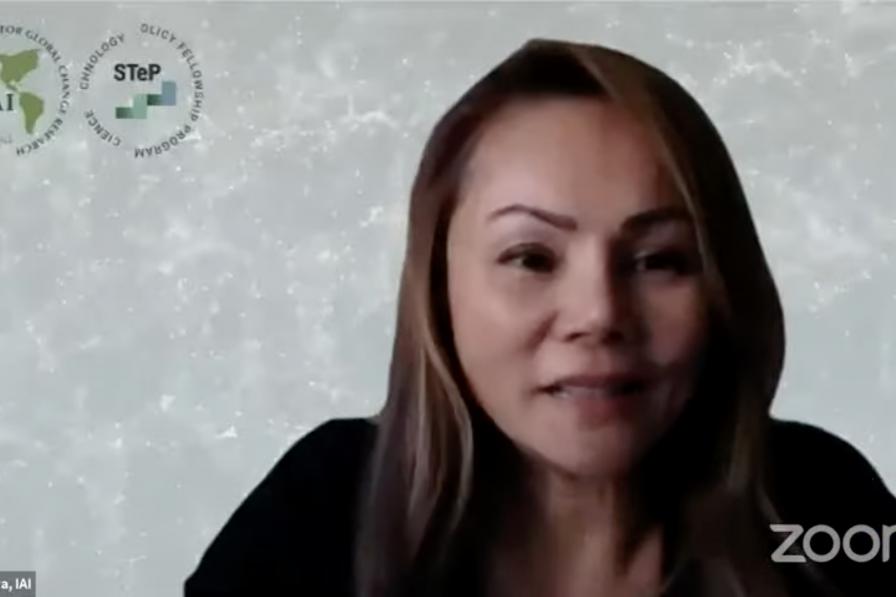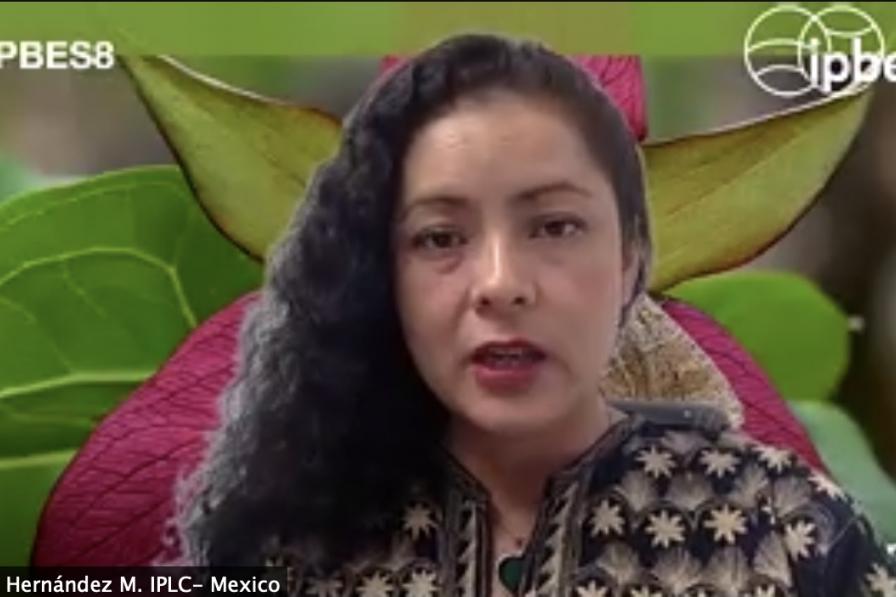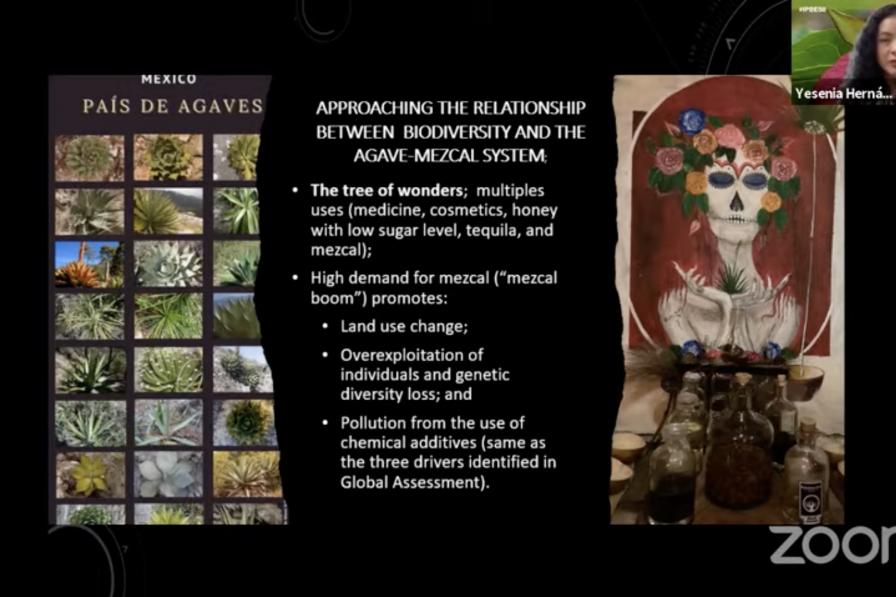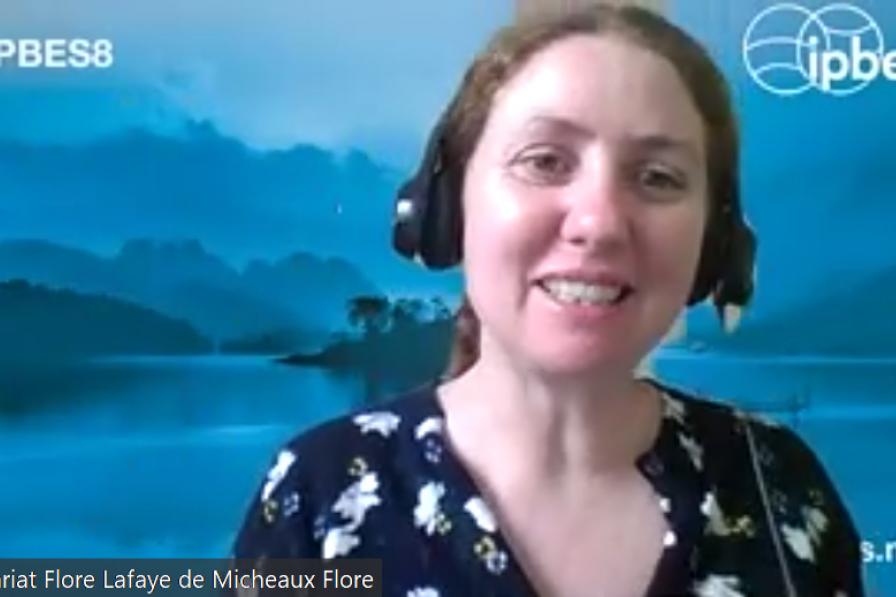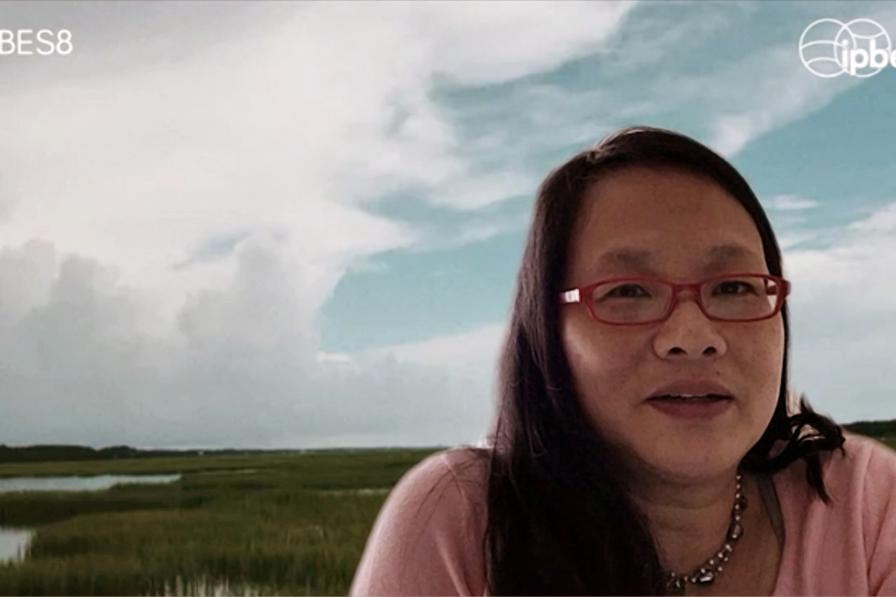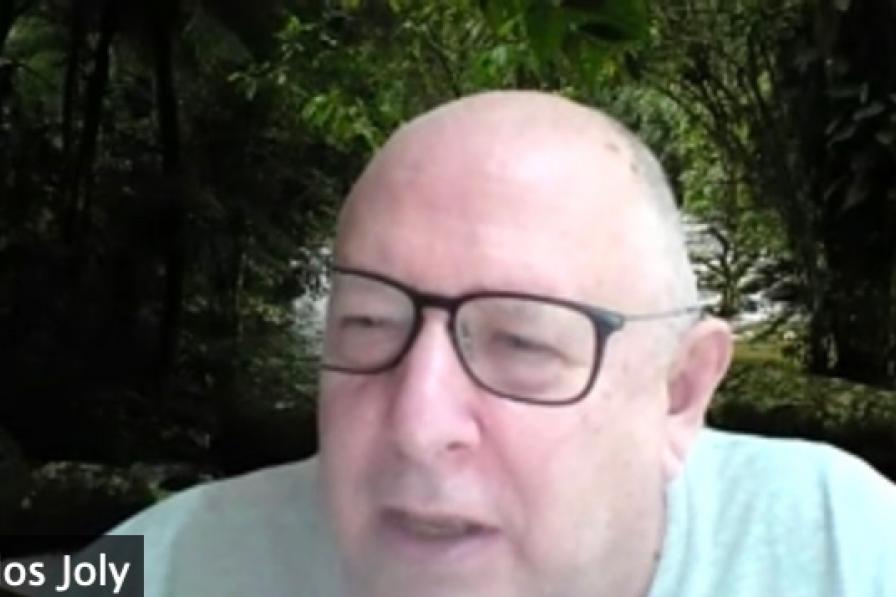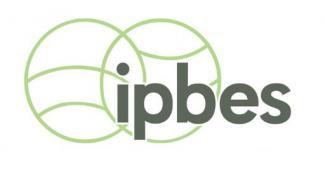The IPBES Stakeholder Days, following a regional approach, devoted the second day of deliberations on North, Central, and South Americas and the Caribbean region. The session was highly interactive, offering online participants the chance to pose questions to panelists. It was co-moderated by Claire Doole, Claire Doole Communications, and Sherry Pictou, Dalhousie University and Member of the IPBES Indigenous and Local Knowledge (ILK) Task Force.
IPBES Chair Ana María Hernández Salgar (Colombia) offered opening remarks.
Cristiana Simão Seixas, Universidade Estadual de Campinas (Unicamp) and Co-Chair of the IPBES 2018 regional assessment on the Americas, offered insights from the regional assessment. She focused on knowledge, policy, and implementation gaps, addressing ways to motivate efficient decision making; promote behavioural change; and transition from sectoral to integrated management. Assessment Co-Chair Jake Rice joined the ensuing discussion.
Discussing opportunities and obstacles of early career researchers to further engage with IPBES work and functions, Andrew Kadykalo, Young Ecosystem Services Specialists (YESS) Network, presented the results of a relevant study, offering useful insights. Håkon B. Stokland, Social Sciences and Humanities Network (SSH Network), ONet, and Lelani Maurice Mannetti, IPBES Fellow, added their perspectives, focusing on the challenges and opportunities for young researchers from the social sciences and humanities, and the IPBES Fellowship Programme respectively.
Regarding regional and national platforms and networks, Natalie Boodram, Caribbean Natural Resources Institute, addressed the Grenada national platform, focusing on stakeholder engagement activities. Ricardo Rozzi, University of Magallanes, University of North Texas, and Institute of Ecology and Biodiversity, focused on the Chilean national platform, underscoring work on the values assessment. Marcella Ohira, Inter-American Institute for Global Change Research (IAI), offered insights regarding building regional capacities and networks.
On IPLC engagement, Viviana Figueroa, International Indigenous Forum on Biodiversity (IIFB), Indigenous Women Biodiversity Network (IWBN), and Member of the ILK Task Force, focused on IPBES messages regarding Indigenous Peoples’ empowerment at the national and international levels. Yesenia Hernández Márquez, ILK Focal Point, Mexico, highlighted opportunities to empower Indigenous Peoples and Local Communities (IPLCs) at the local level.
Miguel Fernandez, ONet, invited participants to further work on the stakeholders’ opening statement at IPBES-8.
To receive continuing coverage of this event delivered to your inbox, subscribe to the ENB Update newsletter.
Selected Images
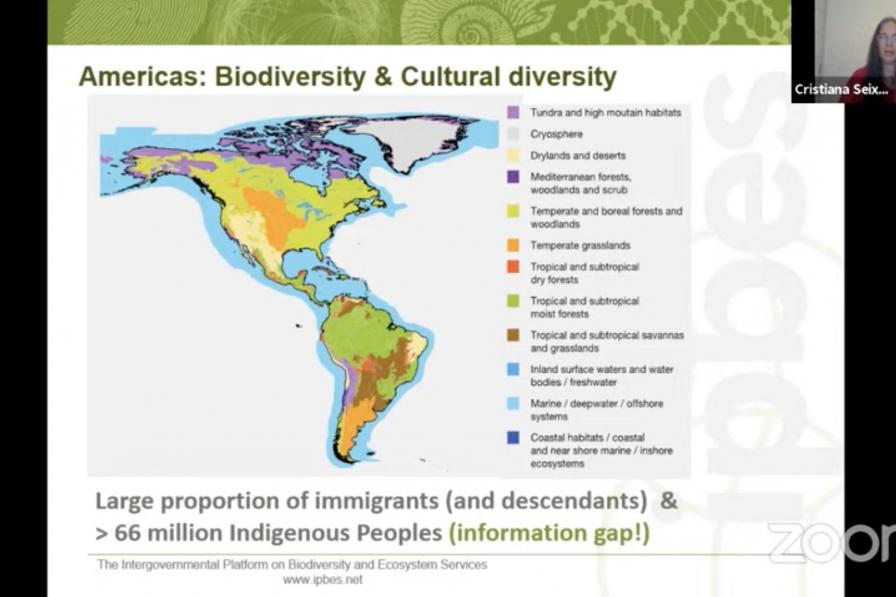
A slide from the presentation made by Cristiana Simão Seixas, Unicamp and Co-Chair of the IPBES 2018 regional assessment on the Americas
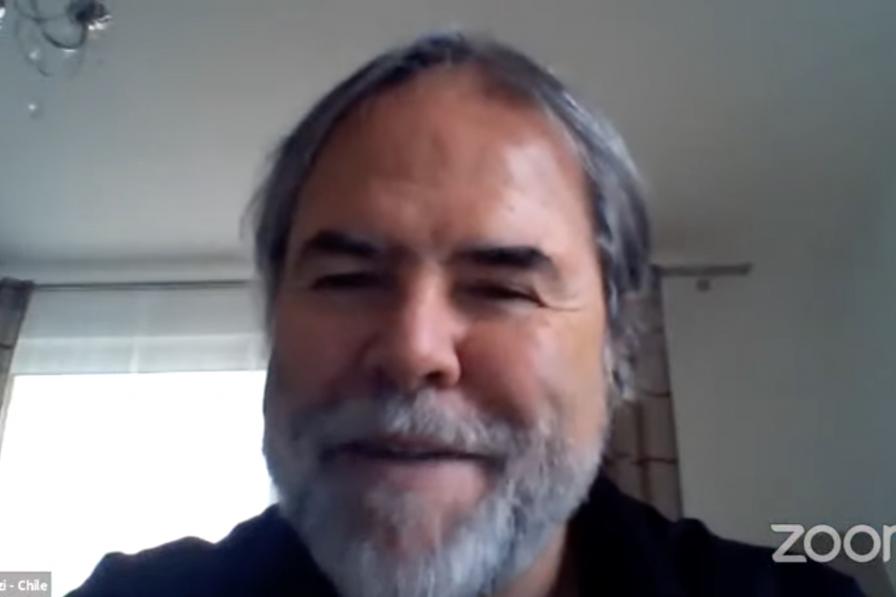
Ricardo Rozzi, University of Magallanes, University of North Texas, and Institute of Ecology and Biodiversity
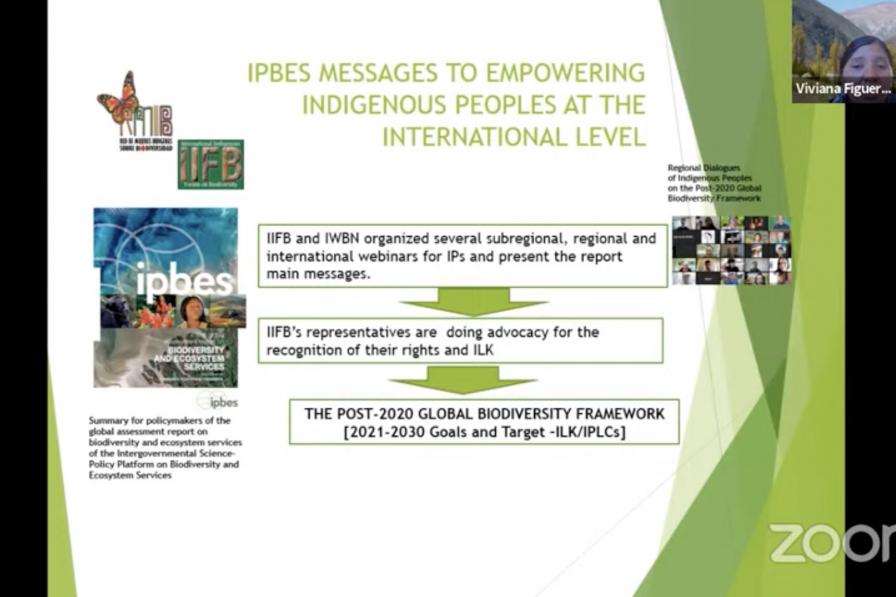
A slide from the presentation made by Viviana Figueroa, IIFB, IWBN, and Member of the ILK Task Force
